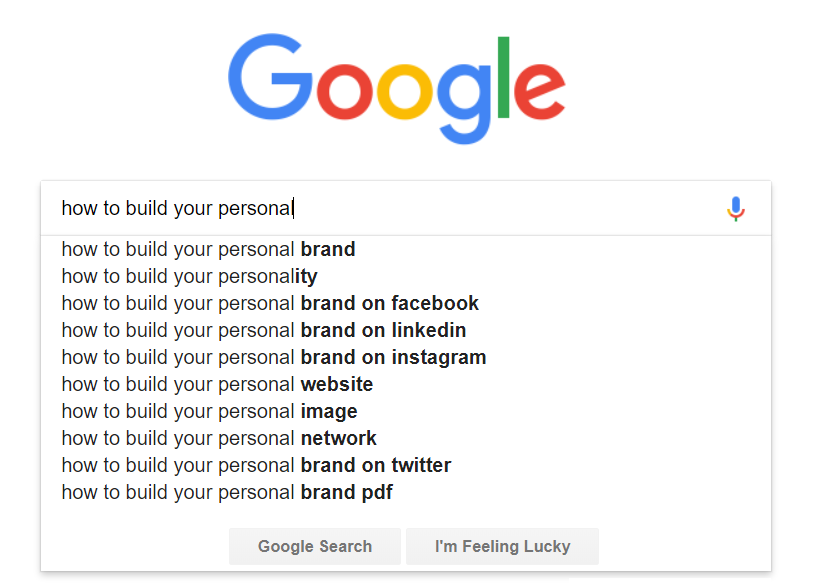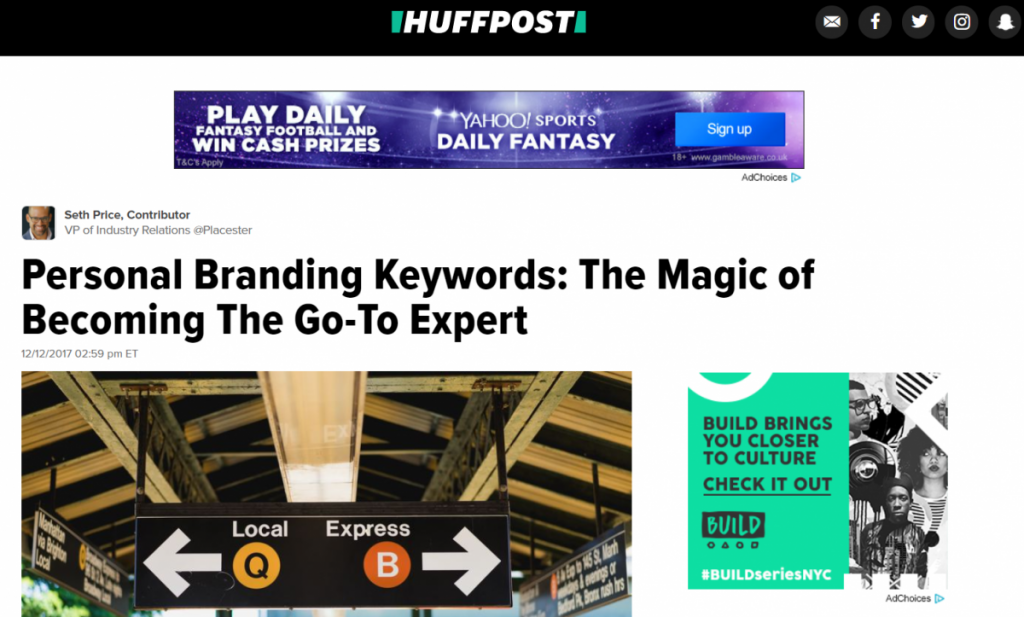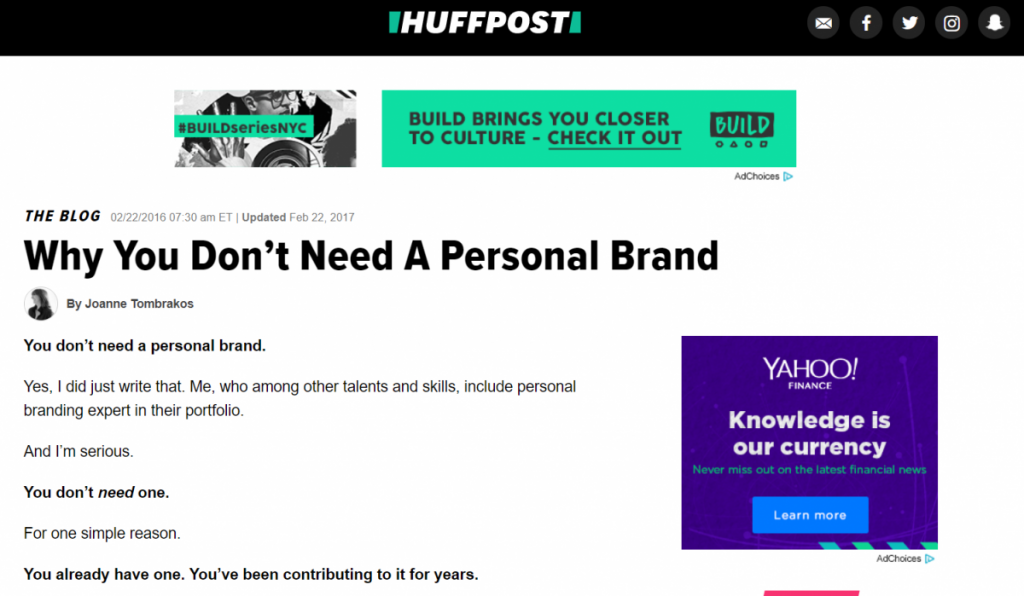As a marketer, I’ve often gone through two alternating phases:
I should make time to work on my personal brand more. I feel like I’m not doing enough to share what I learn from doing my work. If I’m really good at my work but no one knows it, am I really any good?
and
I should just quit all social media so I can focus on getting work done. Personal branding is just an ego boost. It’s not necessary for doing great work.
I find myself alternating between the high of discovering the next great resource and the overexposure to all this data. While the first incentivizes me to get in on the action, the latter makes me want to quit all social media, move to the mountains and raise goats (an option I haven’t discarded yet).
The truth is that I’m still working on finding that balance somewhere in between these two.
Whatever I may choose to focus on, hundreds of articles wait around the corner to reinforce the confirmation bias (and they’re just a Google search away).
You can go this way:
Or you can go the other way:
Or… both.
Truth be told, it’s difficult to talk about yourself without sounding like a self-absorbed prick. Especially on the Internet.
That is why I respect the people who do more and talk less. When they do choose to talk, these people successfully engage in a public form of self-reflection because they are clearheaded and authentic.
David Heinemeier Hanson. Jason Fried. Seth Godin. Sam Mallikarjunan.
These are some of the people whose personal brand is deeply rooted in valuable outputs, not in something artificially created.
I don’t think that Seth Godin feels guilty that he hasn’t posted anything on Instagram today. In fact, Seth chooses to automate his social media posts and to focus on creating value through courses like the altMBA, his daily blog posts or his podcast, Akimbo.
Most times, they direct their efforts towards helping others, either by launching probing questions or by sharing their experiences. They do it consistently and the same values shine through time and again.
If you ask me, personal branding consists more of what you do on a daily basis, both offline and online. It’s not about curating your reality but about building things according to your guiding principles.
Oversharing does not mean you’re building a personal brand. I try not to mistake social media likes for making a real impact. They’re only good for providing an ego boost once too many times a day while distracting all of us from the real work that needs to be done.
Let me come back to my guilt trip, the one that caused this post to linger as a draft for too many months.
It made me realize two things:
1. I was not interested in building a personal brand. What I sought was to build new relationships with inspiring individuals whom I could learn from.
2. Gaining the attention of these individuals and their precious time meant that I had to work hard to build skills and experience so I’d have something valuable to contribute to the conversation.
In order to achieve this goal, I decided to:
- focus on having meaningful conversations, either online or offline
- uninstall the Facebook and Instagram apps from my phone
- post a lot less on social media
- focus on the channels that deliver the most value for me (Twitter, in my case)
- keep curating the list of people I follow
- connect with people who can dive right into deep topics, who are not afraid to dig deep and unearth vulnerable sides of them
- look for clarity and educate myself to overcome my biases.
While these steps have made a difference for me, I have a long way to go. My inboxes are still crammed with newsletters I don’t even open and my Pocket app is still filled with too many articles I’ll most likely never read. But that doesn’t overwhelm me like it used to. Surely, step by step, I will get to a cleaner inbox and a clearer head and more focus and time for the things that matter.
Another easy way to figure out what I could focus on what to do the Unique Ability exercise. The people around you may reveal things you’ve never thought about until now.
To sum up, this is what I think:
Consistency and clarity in how you behave, how you speak and the quality of the things you deliver may seem overrated but they have the most impact, in the long run, both for yourself and others.
And I believe that practicing this every day will rid me of the marketer’s guilt.
Have you ever struggled with the same issue? Maybe sharing your story could help us both be stronger against stretching ourselves thin without understanding the outcomes we’re looking to achieve.


